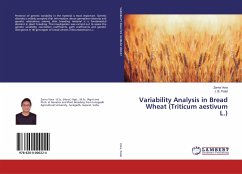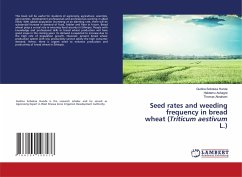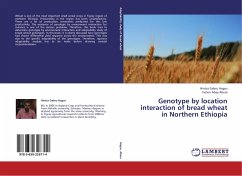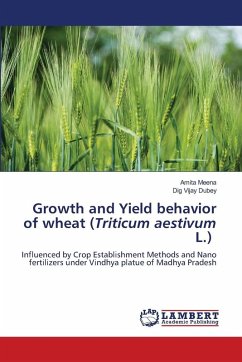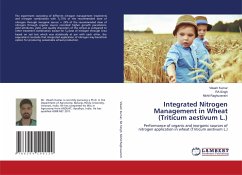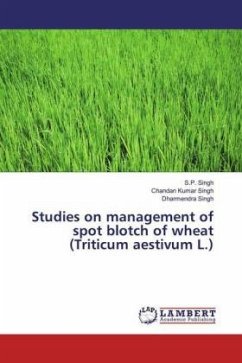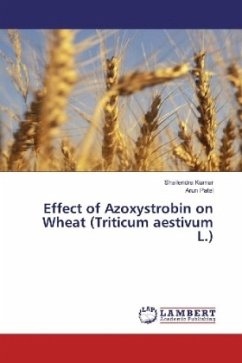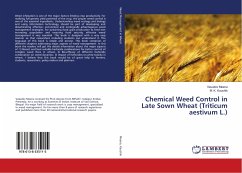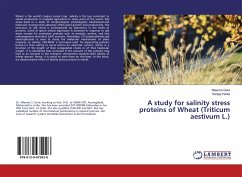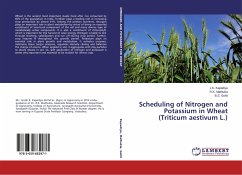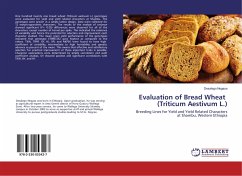
Evaluation of Bread Wheat (Triticum Aestivum L.)
Breeding Lines for Yield and Yield Related Characters at Shambu, Western Ethiopia
Versandkostenfrei!
Versandfertig in 6-10 Tagen
24,99 €
inkl. MwSt.

PAYBACK Punkte
12 °P sammeln!
One hundred twenty one bread wheat (Triticum aestivum L.) genotypes were evaluated for yield and yield related characters at Shambu. The genotypes were grown in a simple lattice design. Data were collected for 12 morph-agronomic characters. The results of the analysis of variance showed significant (P 0.05) differences were observed for all of the characters, except number of kernal per spike. This indicated the existence of variability and hence the potential for selection and improvement each character studied. The mean grain yield performance of the genotypes indicated that genotype ETBW725...
One hundred twenty one bread wheat (Triticum aestivum L.) genotypes were evaluated for yield and yield related characters at Shambu. The genotypes were grown in a simple lattice design. Data were collected for 12 morph-agronomic characters. The results of the analysis of variance showed significant (P 0.05) differences were observed for all of the characters, except number of kernal per spike. This indicated the existence of variability and hence the potential for selection and improvement each character studied. The mean grain yield performance of the genotypes indicated that genotype ETBW7252 gave highest as compared to the others. TKW, TNPP, GY, HI, SPL and NKPSK were found to have high coefficient of variability, intermediate to high heritability and genetic advance as percent of the mean. This means that effective and satisfactory selection for practical improvement of these important traits is possible. Character associations were determined by simple correlation and path coefficient analysis. GY showed positive and significant correlations with TKW, BY, and HI.



